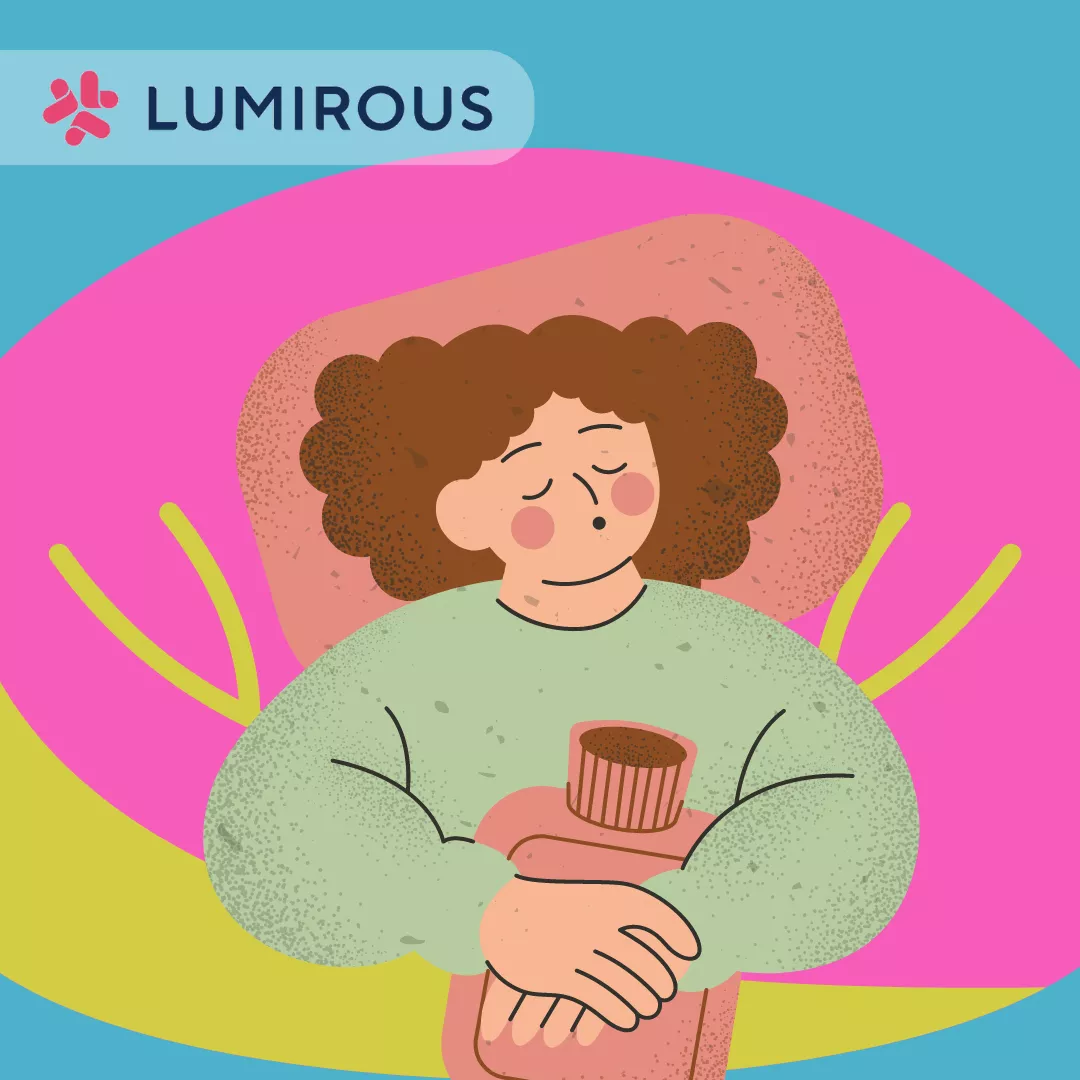Table of Contents
- What Is PMS?
- How Do You Know If You Have PMS?
- What Causes PMS?
- Is There A Cure for PMS?

What Is PMS?
Premenstrual Syndrome (PMS) refers to the symptoms women experience in the weeks before their menstrual periods or we normally called it, PERIOD PAIN!
According to HealthLine, studies show that approximately 48 percent of reproductive-aged women experience PMS. And around 20 percent of these women, suffer from symptoms that are severe enough to affect their daily lives (Higuera, 2023)
PMS is very much an actual health condition that can disrupt a woman's daily life and causes significant physical discomfort and emotional distress.
For some, the PMS symptoms are so severe that they can't get to school or work. At the same time, other women who are suffering from mild symptoms are living a perfectly normal life. Research also shows that on average, women in their 30s are most likely to have PMS.
Each woman experiences different symptoms which can be varied from month to month. However, the symptoms tend to happen in a predictable pattern. But the physical and emotional changes you experience with premenstrual syndrome may vary from just slightly noticeable to intense.
How Do You Know If You Have PMS?
PMS has a wide range of symptoms ranging from emotional distress to physical discomfort.
- Feeling anxious and restlessness
- Feeling unusual anger and irritability
- Experiencing a sad or low mood
- Experiencing mood swings
- Experiencing changes in appetite
- Having cravings for sweet food
- Experiencing a decrease in sex drive
- Having difficulties in concentrating or remembering information
- Experiencing changes in the sleeping patterns
- Having trouble sleeping
- Experiencing abdominal bloating
- Having cramping
- Having sore and swollen breasts
- Having acne
- Having constipation or diarrhea
- Having headaches
- Having back and muscle pain
- Experiencing unusual sensitivity to light or sound
- Experiencing unusual clumsiness
What Causes PMS?
- Cyclic hormonal changes
- Changes in the brain chemicals
- Existing mental health issues
- Lifestyle factors
- Smoking
- Unhealthy diet patterns
- Lack of regular physical activities
- Long-term lack of quality sleep
Is There A Cure for PMS?
It's important to note that while there is no cure for PMS, the condition is manageable through various treatment options. Each individual may respond differently to treatments, so it may require some trial and error to find the most effective approach. With the right management strategies, many individuals can experience a reduction in the severity of PMS symptoms and improve their overall quality of life.
List of Treatments for PMS (Premenstrual Syndrome):
1. Lifestyle Changes: Incorporating regular exercise, maintaining a balanced diet, and managing stress can help alleviate PMS symptoms.
2. Dietary Modifications: Reducing salt, caffeine, and sugar intake, while increasing consumption of whole grains, fruits, and vegetables, may help manage PMS symptoms.
3. Medications: Over-the-counter pain relievers like ibuprofen or naproxen can alleviate menstrual cramps. Prescription medications such as diuretics, hormonal contraceptives, or antidepressants may be recommended for severe PMS symptoms.
4. Supplements: Certain supplements like calcium, magnesium, vitamin B-6, and evening primrose oil have shown the potential in reducing PMS symptoms.
5. Herbal Remedies: Some herbal remedies, including chaste berry, dong quai, and black cohosh, have been used to alleviate PMS symptoms, but their effectiveness may vary.
6. Cognitive-Behavioral Therapy (CBT): CBT can help individuals develop coping strategies and manage the emotional symptoms associated with PMS.
7. Alternative Therapies: Techniques like acupuncture, yoga, massage therapy, and relaxation exercises may provide relief from PMS symptoms.
It's important to note that while there is no cure for PMS, the condition is manageable through various treatment options. Each individual may respond differently to treatments, so it may require some trial and error to find the most effective approach. With the right management strategies, many individuals can experience a reduction in the severity of PMS symptoms and improve their overall quality of life.
Visit LUMIROUS for more information regarding infertility and fertility treatments. Want to know more about PMS? CLICK HERE!
You can also contact us below if you have any further enquiries.
